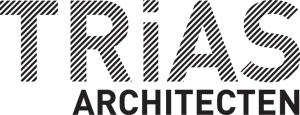NOt Alone at Home
The project’s mission
NOAH (NOt Alone at Home)
Besides objective needs related to healthcare and to compensation of possible impairments, being able to live independently also depends on subjective perceptions, such as feeling safe and comfortable while alone at home.
The NOAH proposal envisages a “light-technology” approach, based on inexpensive and unobtrusive monitoring techniques, on familiar and accessible interaction tools and on cloud-based data processing.
NOAH system will mostly address user’s needs related to safety, adherence to daily living prescriptions (therapies, physical activity, etc.), motivation and self-esteem, participation in social life. Exploiting accumulated knowledge about user’s activity and needs, NOAH will provide the user with context-sensitive support.

CARING OF YOURS
The proposal addresses almost-fit elderly people, not suffering from major medical conditions or severe disabilities, dealing with (or being at risk of) age-related issues, including frailty, mild mental health ailments and cognitive decline.
The proposal mostly focuses on elderly living alone, who represent a growing fraction of the elderly population and are likely to get the most benefit from the proposed technique.
PROJECT GOALS
The NOAH system does not aim at implementing an “automatic” assistive tool, but instead at effectively integrating and complementing (family) caregiving practices:
- from the end-user point of view, effective tools will be provided, helping in planning and dealing with daily living activities in a safer and more effective fashion, also involving motivation and social engagement
- from the (family) caregiver perspective, increased perspicacity will be attained by means of continuous, unobtrusive behavioral monitoring and information fusion techniques, providing objective measurements and detecting anomalies not necessarily evident at human, discontinuous observation.

The NOAH partnership is well suited for the project goals, balanced among main expertise required. The project is in fact based on a varied set of advanced information technologies, brought to the user by means of a sensible, user-centric design approach and keen on rapid access to the market, thanks to the consideration of the whole development chain, accounting for service deployment and management issues into the project flow.

UNIVERSITY OF PARMA
UNIPR will mainly contribute to the technical development workpackage, with lead responsibility in the home-kit development and in sensor networking. I-Cubo will support the project (as third party linked to UNIPR) by taking care of production of home-sensor technology.
Besides the technical duties, UNIPR will coordinate the project and lead WP1.

PROGES
Proges will provide its own expertise, know-how and methodology in health-care services, bringing a qualified contribution during the design and production phase. Its management will supervise the application and testing of the product, and will also contribute to process and analyze the experimental outcomes, even monitoring end users satisfaction, and informal caregivers and other stakeholders’ point of view.
UNITBV, Transilvania University of Brasov
UNITBV will develop cloud services; design the software architecture (taking into account data security aspects), data analysis process and cloud technology. It will provide medical knowledge to the conceptualization phase and, later, in the development of the behavioral analysis module. UNITBV will also hosting the Romanian pilot site, availing itself of the close cooperation with the Social Service Department of Brasov Municipalities.
VSRO, Vision Systems
Vision Systems will collaborate with UNIPR and UNITBV in designing the software and overall architecture of the system and the database for: storing the data; development of cloud services for social interaction; alarms/alerts through email or SMS; programming/developing of software-based user interfaces for desktops, tablets, smartphones; data security.

TRiAS ARCHITECTS
TRiAS ARCHITECTS will be involved in the design of sustainable home solutions and integrating technologies in the home environment, accounting on the outcomes of the people-centric design process. With coordinated party LiCalab, TRiAS will provide methodological support to the end-user interaction in the research phases, as well as managing the Belgian pilot site and leading WP3. With coordinated party Mobilab of TMUC (Thomas More University College), TRiAS will be involved in both the technical design phases, with reference to the interdisciplinary research in behavioral analysis, and in the validation and exploitation phases.




